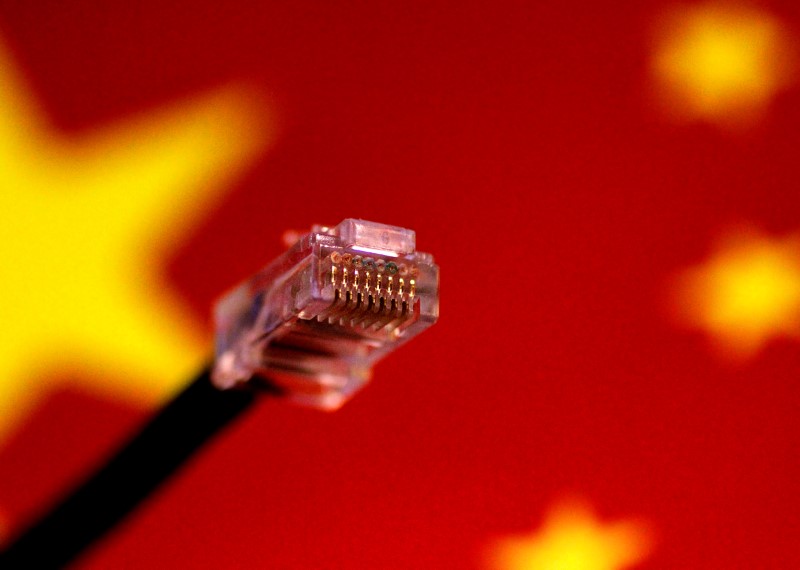(Bloomberg) -- Sign up for Next China, a weekly email on where the nation stands now and where it's going next.
China’s expanding links to the global financial system means it’s harder than ever for the nation to keep its own troubles from spilling over to the rest of the world.
A deadly virus outbreak has shattered optimism in the world’s second-largest stock market, creating the biggest price swings in four years. Authorities stepped in to stem the panic, banning some brokerages from net selling equities and injecting a net 550 billion yuan ($79 billion) of liquidity in two days as markets reopened after an extended halt.
Index inclusion and fewer restrictions for foreign investors are creating new channels for moves in China’s markets to resonate globally. This week’s measures from Beijing helped soothe nerves, avoiding the kind of global meltdown triggered by the yuan devaluation in 2015 and a liquidity-driven crisis in 2016.
Read how the coronavirus has worsened the outlook for Chinese defaults in 2020
But the central bank won’t be pumping cash into the banking system forever -- it actually withdrew funds on Wednesday -- and China risks the ire of global investors if it restricts the selling of shares for much longer.
Below is a look at how China’s capital markets are connected to the outside world like never before.
Size and scale
The world’s most populous nation is gaining a bigger share of global benchmarks tracked by many investors. Stoked by the nation’s economic rise, Chinese shares comprise about a third of the stocks on MSCI Inc.’s Asia ex-Japan gauge. The Bloomberg Barclays (LON:BARC) Global Aggregate Index of bonds has started including Chinese debt, which will this year account for about 6% of the more than $50 trillion in bonds included in the benchmark.
Read why the SARS comparisons don’t work for markets
Global equity markets are moving increasingly in lockstep with China’s: the 30-day correlation between the Shanghai Composite Index and the MSCI Asia ex Japan Index is near the highest since August. The possibility for the Shanghai gauge to move in the same direction with the S&P 500 Index is at a one-month high.
Foreign exposure
Beijing is also allowing foreigners to hold more Chinese assets. Last year, it scrapped limits on overseas purchases of stocks and bonds and said global funds no longer needed approvals for quotas. Through initiatives such as the stock link with Hong Kong, international investors now own about 3% of the onshore equity market. Foreigners only hold about 2% of the world’s second-largest bond market, but are steadily building their positions to records.
MSCI Inc. in November completed its latest round of inclusion of yuan-denominated equities, increasing the weighting of the stocks to 12% of its benchmark China index.
Investors outside the mainland have taken advantage of the sell-off in China. They bought a net 18.2 billion yuan of shares via Hong Kong’s links with mainland exchanges on Monday even as onshore stocks fell the most since 2015.
Overseas listing
But with many Chinese companies listed abroad, in particularly Hong Kong and New York, the virus outbreak has directly impacted offshore markets. About half the companies in Hong Kong’s Hang Seng Index generate most of their revenue from the mainland. The Singapore bourse also houses almost 50 Chinese companies.
Investors will now likely have to cope with a delay on financial updates from Chinese companies as work and travel restrictions make it hard to finish accounting. But even worse will be the earnings pressure from the spreading virus, with large parts of China’s economy shut down. The impact on non-financial companies’ first-quarter earnings could be 20 to 30 percentage points, according to brokerage China International Capital Corp.
Investors are betting that China will be able to contain the spread and prevent a global market meltdown.
“We believe that a broad-based correction should be relatively short-lived with a more effective virus containment policy,” said Ronald Chan, chief investment officer Asia ex-Japan at Manulife Asset Management, referring to the global market.
Yuan politics
While the Chinese yuan is far from being a global currency -- and its internationalization hasn’t taken off as expected -- China’s large role in global trade means its exchange rate is closely watched. The currency has been a key point of contention for the Trump administration -- the recently signed phase-one trade deal between the U.S. and China included a currency pact to avoid manipulation.
The yuan’s volatility last year jolted emerging market Asia peers, such as the Korean won and Malaysian ringgit. China’s central bank has this week set the yuan’s daily reference rate stronger than 7 per dollar -- all eyes are on whether it will allow market forces to weaken the currency much further.
